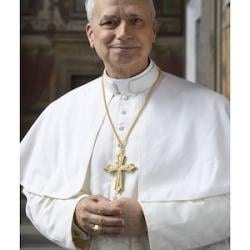23 N. T. Wright, The Resurrection of the Son of God (Minneapolis: Fortress, 2003), 49-50. See also Wright, The Challenge of Jesus: Rediscovering Who Jesus Was and Is (Downers Grove, Ill.: InterVarsity, 1999), 123. For ways of conceiving early Christianity's inculturation, see Paul L. Gavrilyuk, "Harnack's Hellenized Christianity or Florovsky's 'Sacred Hellenism': Questioning Two Metanarratives of Early Christian Engagement with Late Antique Culture," St. Vladimir's Theological Quarterly 54 (2010): 323-44. See also Wayne Meeks, "Judaism, Hellenism and the Birth of Christianity," in Paul beyond the Judaism/Hellenism Divide, ed. Troels Engberg-Pedersen (Louisville, Ky.: Westminster John Knox, 2001), 17-28.
24 See Oscar Cullmann, Immortality of the Soul or Resurrection of the Dead? The Witness of the New Testament (New York: Macmillan, 1958), 15-17. Cullmann holds that the soul becomes immortal only through faith in Jesus' resurrection. Influentially, Martin Werner argued that the early Church de-eschatologized and Hellenized
134 • Notes to pp. 4-8
the Gospel: see Werner, Die Entstehung des christlichen Dogmas (Bern: P. Haupt, 1941). See also Karl Barth, The Resurrection of the Dead, trans. H. J. Stenning (Eugene, Ore.: Wipf & Stock, 2003), 207. For resurrection and immortality as found in late Second-Temple Jewish literature, suggesting that any simple contrast between Hebrew and Greek perspectives is a false one, see Maurice Gilbert, "Immortalité? Résurrection? Faut-il choisir? Témoignage du judaïsme ancient," in Le judaïsme à l'aube de l'ère chrétienne, ed. Philippe Abadie and Jean-Pierre Lemonon (Paris: Cerf, 2001), 271-97; James Barr, The Garden of Eden and the Hope of Immortality (London: SCM Press, 1992), chap. 5.
25 Martin Heidegger, "Einleitung in die Phaenomenologie der Religion," in Heidegger, Phänomenologie des religiösen Lebens (Frankfurt: Klostermann, 1995), 104.
26 Tertullian, "The Prescription against Heretics," trans. Peter Holmes, in Latin Christianity: Its Founder, Tertullian, ed. A. Cleveland Coxe, Ante-Nicene Fathers, vol. 3 (Peabody, Mass.: Hendrickson, 1994), 7.10, 246. For Tertullian's use of philosophy in his theology of resurrection, see Claudia Setzer, Resurrection of the Body in Early Judaism and Early Christianity: Doctrine, Community, and Self-Definition (Leiden: Brill, 2004), 136-37.
27 Jürgen Moltmann, History and the Triune God: Contributions to Trinitarian Theology, trans. John Bowden (New York: Crossroad, 1991), 95. For a helpful response to what he calls the "Theory of Theology's Fall into Hellenistic Philosophy" in light of the numerous proponents of this theory (including Moltmann), see Paul L. Gavrilyuk, The Suffering of the Impassible God: The Dialectics of Patristic Thought (Oxford: Oxford University Press, 2004), esp. 1-46 and 176-79. According to Moltmann, "Thomas replaces the biblical history of promise with a finalistic [teleological] metaphysics. He replaces the hope which seeks the fulfilment of the promise with the natural striving for happiness which according to Augustine can come to fulfilment only in God himself. The 'coming God,' ho erchomenos, deus adventurus, is replaced by the 'unmoved Mover' who draws all creatures to him by virtue of eros. The eschatological promise of the 'new heaven and new earth'-'Behold, I make all things new' (Rev. 21.5)-is replaced by the visio Dei beatifica in patria, i.e. heaven, the bliss of the pure spirits in the world beyond" (Moltmann, History and the Triune God, 95).
28 Hans Urs von Balthasar, "Some Points of Eschatology," in Balthasar, The Word Made Flesh, trans. A. V. Littledale with Alexander Dru, vol. 1 of Explorations in Theology (San Francisco: Ignatius Press, 1989), 261n9. See also, along similar lines (and with important nuances), Balthasar, "The Fathers, the Scholastics, and Ourselves," trans. Edward T. Oakes, S.J., Communio 24 (1997): 72-80, 394-96. At the same time, Balthasar was deeply indebted to the Fathers and praised Gregory of Nyssa, among the most Platonic Fathers, for knowing "better than anyone how to transpose ideas inwardly from the spiritual heritage of ancient Greece into a Christian mode." See Hans Urs von Balthasar, Presence and Thought: An Essay on the Religious Philosophy of Gregory of Nyssa, trans. Mark Sebanc (San Francisco: Ignatius Press, 1995), 15. David Bentley Hart similarly gives pride of place to Gregory of Nyssa, even while admitting that Gregory's eschatology can (mistakenly) seem to be "a barely regenerate Platonism." Hart, The Beauty of the Infinite: The Aesthetics of Christian Truth (Grand Rapids: Eerdmans, 2003), 402.




